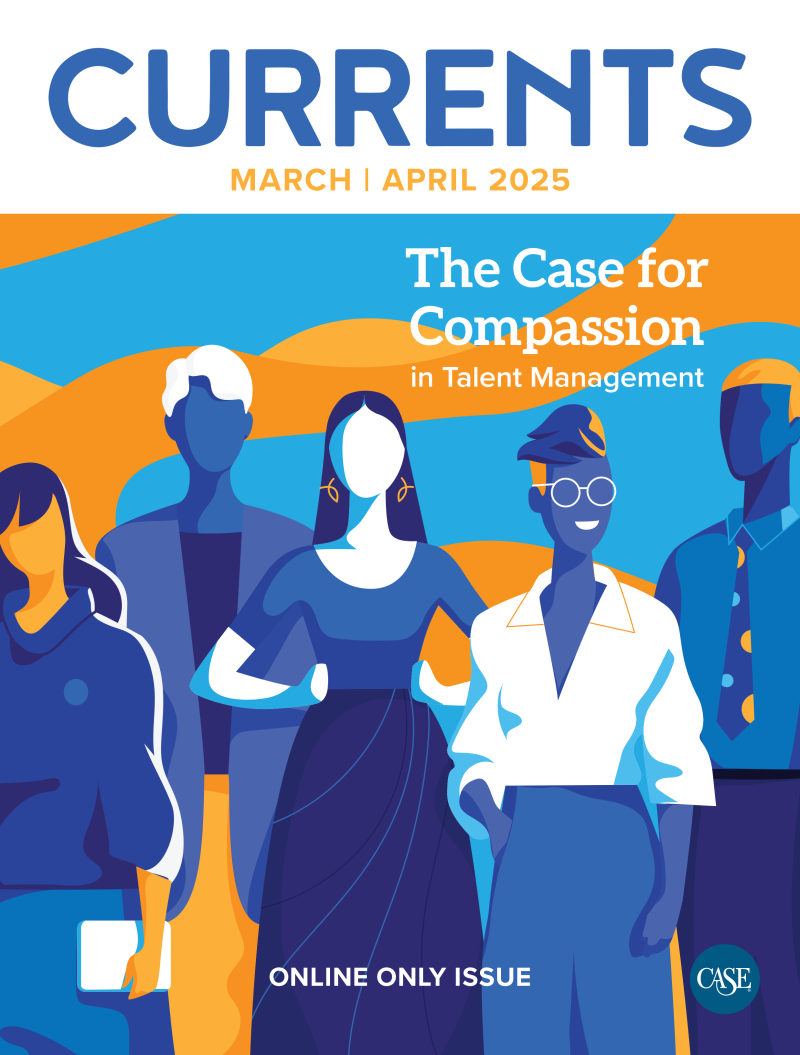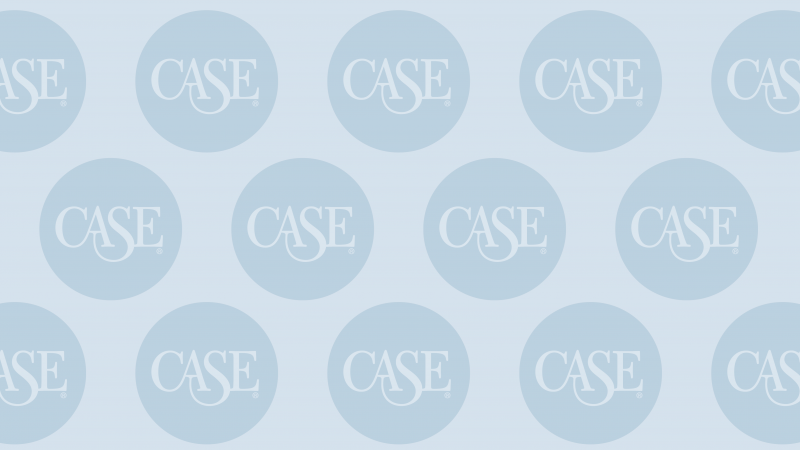
It Works Both Ways
When it comes to educational marketing, universities and independent schools can seem worlds apart. Independent schools—like the one I work for in the U.K.—focus on tight-knit communities, emphasizing personalized learning and family engagement. Universities, on the other hand, can operate on a larger scale, with some boasting global reach, significant budgets, and a diverse audience.
I started my career in media relations at the Northumbria University (Newcastle, U.K.), working in a fast-paced environment where the university had a big budget, established brand, and the weight of tradition behind it. Moving into the independent school sector, I expected things to be completely different—and in many ways, they were. But over the years, working in three different schools, I’ve come to realise that despite the differences in scale, the challenges of educational marketing are surprisingly similar.
I have friends and former colleagues across both sectors, and we often swap stories about the pressures of recruitment, the battle for budgets, and the ever-evolving landscape of education. Universities and independent schools may operate in different ways, but they can learn a great deal from each other as they work to enhance their marketing strategies—particularly now, as both face growing competition and an increasingly complex political and economic climate.

1. Personalization: Finding the Balance Between Scale and Individual Attention
Independent schools have mastered the art of personalization. They build strong relationships with prospective students and their families, tailoring communication to address individual needs. From personalized admissions experiences to one-on-one follow-ups, independent schools make families feel valued and understood.
Universities, operating on a much larger scale, have traditionally taken a more general approach. However, the rise of customer relationship management systems and big data has enabled them to refine their targeting. Universities now have the tools to personalize email campaigns, tailor social media ads, and track student engagement at an individual level.
Learning From Each Other
- Universities can learn from independent schools by incorporating more direct, relationship-based communication. Hosting smaller, targeted events or offering personalized campus visits can help build deeper connections with prospective students.
- Independent schools can learn from universities by leveraging data-driven insights to refine their marketing efforts. Analysing trends in student behaviour can help them craft more effective outreach campaigns.
2. Community Building: Creating Loyalty Beyond Graduation
Independent schools thrive on their ability to foster a strong sense of belonging. They create close-knit communities where students, parents, and alumni feel deeply connected to the school’s mission and values. This emotional bond translates into strong word-of-mouth marketing, with alumni and parents actively recommending the school.
Universities, particularly those with larger student populations, sometimes struggle to replicate this level of intimacy. However, they have powerful alumni networks, student organizations, and campus traditions that help create lifelong connections.
Learning From Each Other
- Universities can learn from independent schools by developing smaller, interest-based communities within their larger institutions. Creating mentorship programs, student-led networks, and alumni engagement initiatives can help foster deeper connections.
- Independent schools can learn from universities by maintaining alumni relationships over the long term. Universities often provide career support, networking opportunities, and digital engagement platforms—strategies independent schools could adopt to keep their alumni actively involved.

3. Agility: Adapting to Change Quickly
Independent schools often operate with smaller teams and fewer bureaucratic processes, allowing them to pivot quickly in response to new challenges. Whether adapting marketing strategies, implementing new technologies, or responding to shifts in parental expectations, they are known for their agility.
Universities, on the other hand, tend to be more structured and slow-moving due to their size and administrative complexity. However, they have the advantage of long-term strategic planning and access to extensive resources.
Learning From Each Other
- Universities can learn from independent schools by embracing a more flexible, experimental approach to marketing. Rapid testing of new campaigns, social media trends, and enrolment strategies can help them stay ahead.
- Independent schools can learn from universities by balancing short-term responsiveness with long-term planning, ensuring their strategies are sustainable and scalable.
For Example: Responding to a Crisis
During the COVID-19 pandemic, independent schools quickly adapted by offering virtual tours and personalized video calls for prospective families. Universities used their resources to develop comprehensive digital marketing campaigns. The best results came from institutions that combined speed with strategic planning.
4. Storytelling With Authenticity: Making an Emotional Connection
Storytelling is at the heart of independent school marketing. Schools focus on individual student journeys, unique learning environments, and the personal impact of their education. These stories create emotional connections that resonate with prospective families.
Universities also use storytelling, but often at a broader level, highlighting faculty research, institutional achievements, and large-scale student successes. While these narratives are important, universities can benefit from incorporating more personal, student-focused storytelling.
Learning From Each Other
- Universities can learn from independent schools by emphasizing personal student experiences and making their messaging feel more relatable.
- Independent schools can learn from universities by improving the production quality and reach of their storytelling efforts, using video content and digital media more effectively.
For Example: AI-Powered Storytelling
Some universities have started using artificial intelligence to analyse engagement data and determine which stories resonate most with different audiences. Independent schools could adopt similar tools to refine their storytelling and make their narratives even more compelling.

5. Parental Engagement: Recognizing Key Decision-Makers
Independent schools understand that parents play a crucial role in the decision-making process. Their marketing directly addresses parental concerns, from academic outcomes to student well-being and future career prospects.
Universities often assume that students are the primary decision-makers. While this is generally true, parents still influence decisions, particularly in financial and logistical considerations. Universities can improve their outreach by creating content specifically designed for parents.
Learning From Each Other
- Universities can learn from independent schools by incorporating more parent-focused messaging into their marketing strategies.
- Independent schools can learn from universities by recognizing the growing influence of student voices in decision-making and tailoring messaging to engage students directly.
For Example: Parent-Focused Marketing
A growing number of universities are launching dedicated parent portals, providing resources and updates tailored specifically for families. Independent schools have long used similar strategies, but they could take inspiration from universities by expanding their digital resources for parents.
6. Resourcefulness: Maximizing Impact with Limited Budgets
Independent schools often operate with smaller marketing budgets, which forces them to be creative in their outreach. They rely on social media, community engagement, and word-of-mouth marketing to attract students.
Universities with larger budgets sometimes focus heavily on traditional advertising and large-scale recruitment campaigns. However, they can learn from independent schools by adopting more cost-effective, grassroots marketing techniques.
Learning From Each Other
- Universities can learn from independent schools by focusing more on student ambassadors and community-driven marketing.
- Independent schools can learn from universities by using data analytics to optimize their marketing spend and measure the effectiveness of different campaigns.
For Example: Maximising Budget Impact
Through the York Boarding Schools Group, several of us are coming together to promote York as a destination for students. By sharing a digital marketing campaign, we are reducing costs while expanding reach. Meanwhile, universities have used predictive analytics to determine the most cost-effective recruitment strategies. By blending these approaches, both sectors can make better use of their marketing budgets.
It’s a Two-Way Street
Both universities and independent schools have developed unique strengths in marketing and student engagement. Independent schools excel in personalization, community building, and agility, while universities leverage data-driven insights, storytelling, and long-term strategic planning.
By learning from each other, both sectors can refine their marketing approaches, better engage students and families, and ensure they remain competitive in an evolving educational landscape. The key to success lies in recognizing that no one sector has all the answers—collaboration and knowledge-sharing can drive innovation and growth in both independent schools and universities.
About the author(s)
Jenny Dinning is Director of Admissions and Marketing at Bootham School, a coeducational boarding and day school in York, U.K. She has also served in admissions and marketing at Durham School, Clifton College, and the University of Northumbria (U.K.).
Tags
Article appears in:

March - April 2025
DIGITAL-ONLY ISSUE—Why compassion matters more than ever in talent management.
Plus what universities and schools can learn from one another, how one school rebooted annual giving, neurodiversity in advancement, and more.









